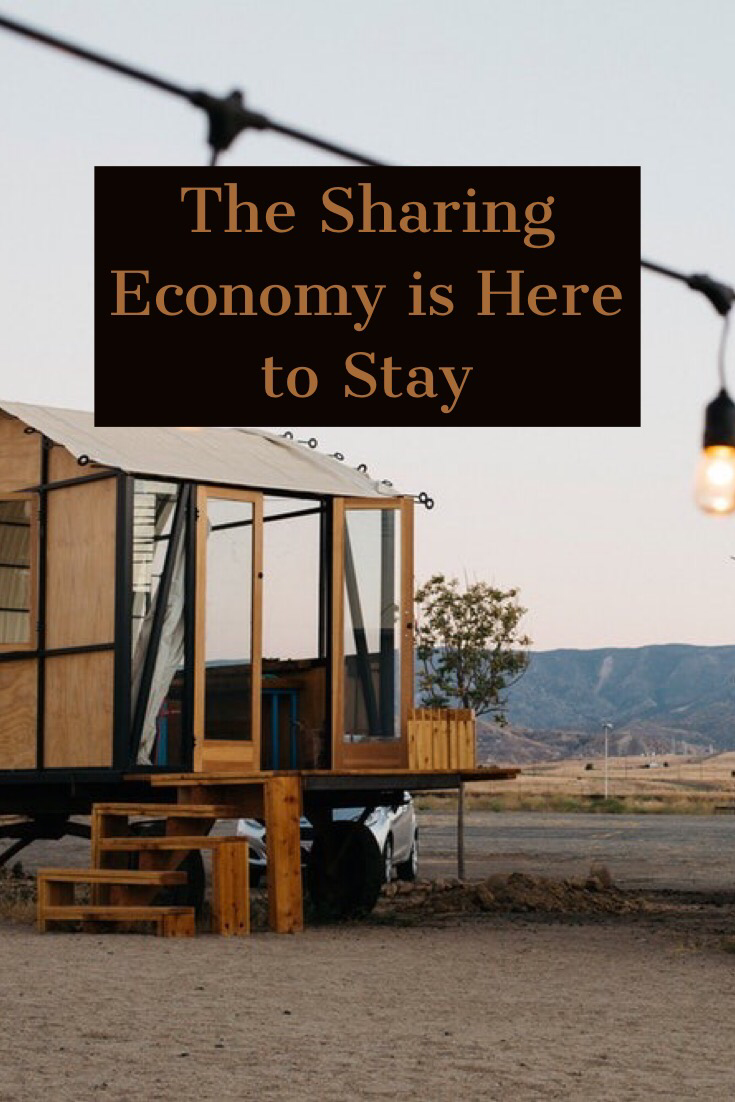|
Trusting complete strangers has become the norm and it is having a big impact on our economy. Does having access to a car without the hassle of owning a car sound like a dream come true? What about designer dresses or jewelry? Well none of these ideas are dreams. The reality of the sharing economy gives people access to almost anything at a fraction of the cost of ownership. And it is all thanks to technology and our unusual trust in complete strangers. What is the sharing economy?
At a basic level, the sharing economy uses technology to facilitate transactions between people with idle resources and other people willing to pay for them. For example, someone has a car, a bicycle, or a house that they are currently not using and they want to make some extra cash. Thus they sell the right for someone else to use the item for a limited amount of time. The concept is pretty simple and has led to a multi-billion dollar industry with companies like Uber and Airbnb providing the technology to facilitate these transactions. Problems with sharing There are a couple of serious issues with the sharing economy. Number one. The idea of trusting complete strangers with access to our stuff depends on believing in the basic goodness of humanity. Do you trust in innate human goodness? I don't. Most people don't go around kicking puppies and stealing candy from babies, but they are innately selfish when it comes to using other people's stuff. If the only responsibility you hold to someone else is the small fee you paid for access to the item, then you will abuse it. Most people can justify damaging or losing something because they were "using it." This is true of roommates and cousins borrowing tools and even more so of complete strangers in the sharing economy. Number two is a related issue. When we share and an object essentially belongs to everybody, then it actually belongs to nobody. This concept is called the "tragedy of the commons." Think about public parks or the atmosphere or oceans. Since nobody owns them, people are free to abuse them with no consequences. Parks fill with litter and graffiti, the atmosphere is polluted, and the oceans are full of garbage. Anything held in common by everyone suffers a similar fate. Bike sharing programs in China have led to tens of thousands of stolen and damaged bicycles. People simply don't care about things they have no personal stake in. Why is it still popular? Despite the above problems, the sharing economy is growing and people trust it more than traditional institutions like the press, banks, and governments. But why? The answer is technology. It allows complete strangers to interact and immediately establish a level of trust that could takes months or years to normally create. Through technology you can have a profile with detailed information, peer reviews from fellow users, and policing by the companies that facilitate the interaction to weed out the bad eggs. Future generations might end up depending on the sharing economy for everything from clothes to housing to travel. In fact, today many already do.
0 Comments
Your comment will be posted after it is approved.
Leave a Reply. |
AuthorEthan Hausmann is currently the Vice President of Marketing and Community Outreach for Successtar Enterprises LLC. He is an author, professional speaker, and seminar/workshop instructor. Ethan has extensive knowledge and experience in marketing, customer service, leadership, and other small business related concerns. CategoriesAll At The Movies Business Busy Change Choices Education Holiday Human Resources In The News Leadership Marketing Money Real World Social Media Storytelling Technology Time |
Search by typing & pressing enter


 RSS Feed
RSS Feed
